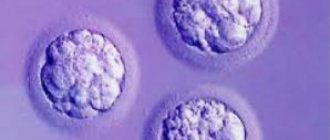The article was prepared by a specialist for informational purposes only. We urge you not to self-medicate. When the first symptoms appear, consult a doctor.
Pregnancy is a normal physiological state of the female body. But pregnant women are more sensitive to negative environmental factors, which makes them susceptible to many diseases. That is why it is so important to protect expectant mothers from any pathological abnormalities. After all, this concludes the responsibility for two lives - mother and child. One of the common problems that a woman may face during pregnancy is diarrhea.
Diarrhea during pregnancy is a dysfunction of the intestines in women that occurs in response to the progression of pregnancy or the irritating effect of external factors, and is manifested by an increase in the frequency of stools with changes in the nature of stool. In order to avoid misunderstanding when considering this problem, it is worth clarifying that diarrhea and diarrhea are the same disease.
In any healthy person, regardless of gender and age, the appearance of diarrhea is a pathology. During pregnancy, the situation is a little different, since loose stools may be part of the natural course of pregnancy at certain times. Diarrhea can also occur secondarily, being a symptom of certain diseases or pathological processes. This means that pregnant women need to be able to clearly and correctly differentiate between normal and disease, which affects the tactics of pregnancy management and eliminating the problem.
Typically, pregnancy is characterized by the occurrence of deviations in stool towards the appearance of constipation. But in some women, due to the peculiarities of the anatomical relative position of the enlarged uterus and intra-abdominal structures, they press on each other.
This is most evident when the uterus enlarges to the level of the navel, which corresponds to 17-23 weeks of pregnancy. It is during this period that most women notice the appearance of diarrhea. In another part of pregnant women, diarrhea appears at the very beginning of the gestational period and in the prenatal period.
The data presented indicate that the intra-abdominal nerves of the solar and other plexuses react very strongly to compression or displacement of the intestinal loops by the dramatically changed uterus. As a result, increased peristalsis and diarrhea. But the most important thing is that the problem is short-term in nature, since the body gradually adapts to new conditions, and everything is perceived as the norm.
Among the causes of diarrhea due to pathological influences are:
- Errors in diet;
- taking medications: magnesium, vitamin B6, folic acid, multivitamin complexes;
- Irritable bowel syndrome;
- Acute intestinal infections;
- Gastroenterocolitis;
- Gastric and intestinal dyspepsia;
- Exacerbation of chronic pancreatitis;
Whatever the origin of diarrhea, it must be dealt with. After all, any deviation from the norm is fraught with danger. The scope of measures depends on the characteristics of diarrhea: duration, intensity and nature.
Is diarrhea dangerous during pregnancy?
Regardless of what caused the diarrhea - physiological or pathological abnormalities, it itself can pose a threat to the health of the mother and child.
But only under certain conditions, these include:
- Long-term moderate diarrhea;
- Copious and frequent loose stools;
- Associated vomiting;
- Poor appetite with refusal to eat and drink liquids;
- Complication of pregnancy with severe toxicosis;
- Concomitant increase in body temperature;
- The presence of pathological impurities in the stool: mucus, bloody contents, greens, particles of undigested food, whitish spots;
The presence of one or more signs indicates the pathological origin and course of diarrhea. Such conditions threaten dehydration, disturbances in the electrolyte composition of blood and biological fluids, which can adversely affect the condition of the fetus and the stability of its gestation. Therefore, as soon as alarming signs are noticed, you must immediately seek help from an antenatal clinic.
The situation looks completely different with diarrhea during pregnancy, which is not accompanied by dangerous symptoms, or it all comes down to the appearance of diarrhea after eating. With such diarrhea, it is impossible to bring the body to dehydration. The only thing that may be alarming is the long-term persistence of this condition due to the fact that, along with loose stools, some of the beneficial nutrients that are so necessary for the mother and her unborn baby are removed.
Consequences of diarrhea
Dehydration is very dangerous for the health of the unborn child.
Regardless of the cause, diarrhea is dangerous for a pregnant woman. Even if this condition is not the result of an infectious lesion, the loss of fluid harms the general condition of the woman and the fetus.
Dehydration leads to circulatory problems. Problems with blood circulation affect all areas, including the placenta.
This process leads to the woman’s malaise and deterioration in the condition of the fetus. This often leads to severe toxicosis. The condition worsens if vomiting occurs. Even if you vomited no more than three times, you still need to take immediate action, because this is an additional loss of fluid.
Diarrhea that develops due to infection or viruses entering the body has especially serious consequences. If an infection occurs, the body will be negatively affected by toxins produced by harmful microorganisms. If we are talking about viruses, then they are able to penetrate the placental barrier and harm the child.
Such harmful consequences that can occur as a result of diarrhea are a reason to immediately consult a doctor. Self-medication is extremely dangerous.
Diarrhea in early pregnancy
One of the most common periods of pregnancy during which physiological diarrhea occurs is the early stages (first trimester). The culprits may be the woman’s own hormones, which support pregnancy and the growth of the fertilized egg, as well as foreign components of the fetus during its intensive growth and development. In this way, like diarrhea, the body tries to throw out substances that are unusual for a pregnant woman. The natural route for their elimination is usually the gastrointestinal tract, which begins to work in enhanced mode.
A feature of diarrhea in early pregnancy is its high frequency with a high risk of dehydration due to concomitant vomiting.
Against the background of toxicosis, appetite sharply decreases, any desire to eat or drink anything disappears, so as not to provoke the resumption of unpleasant symptoms. This is a typical scenario for complications of early toxicosis, accompanied by diarrhea. Therefore, if diarrhea persists, it is important to consult a specialist in a timely manner.
Risk factors for early toxicosis in pregnant women
Provoking factors leading to the development of early toxicosis during pregnancy include: - chronic diseases of the digestive system, kidney disease; - stress, increased nervous excitability, depression; - hereditary predisposition; - chronic intoxication (including smoking, drinking alcohol).
Symptoms of early toxicosis in pregnant women
Symptoms of early toxicosis of pregnant women often appear at 5-6 weeks of pregnancy. Moderate nausea, intermittent vomiting in the morning, changes in food habits, and odor intolerance are not a disease if they do not lead to weight loss, weakness, or decreased performance; rather, these symptoms remind a woman of pregnancy. With any degree of early toxicosis in pregnant women, a decrease in the weight of the pregnant woman is observed; with moderate and severe degrees, blood pressure decreases, the pulse increases, drowsiness, weakness, and irritability occur. Most pregnant women with toxicosis complain of decreased appetite; even the smell of food causes a gag reflex. The most common form of early toxicosis is vomiting. Depending on the severity of the vomiting symptom, there are 3 degrees of severity of toxicosis.
First degree - mild vomiting. Vomiting occurs no more than 5 times a day, more often after eating. The general condition of the pregnant woman remains normal, and weight loss is no more than 3 kg. Laboratory tests reveal no deviations from the norm.
Second degree - moderate vomiting. Vomiting occurs up to 10 times a day (on an empty stomach or after eating), and weight loss in 2 weeks can be 3 kg. The general condition of the pregnant woman is deteriorating. The pulse rate increases, and blood pressure, on the contrary, decreases. Acetone appears in the urine.
The third step is uncontrollable, excessive vomiting. Vomiting occurs up to 25 times a day. Such vomiting causes dehydration and sudden weight loss for the pregnant woman (weight loss can reach 10 kg). Her skin becomes dry and flabby, an unpleasant odor appears from her mouth, her body temperature rises, her pulse quickens, her blood pressure decreases, and general lethargy is noted. Tests show impaired renal and liver function.
How to deal with toxicosis
At the first signs of toxicosis, you should urgently contact an obstetrician-gynecologist. A severe form of toxicosis poses a threat to the life of the pregnant woman and the fetus.
For mild vomiting during pregnancy, treatment is possible in a antenatal clinic; if the condition worsens or treatment is ineffective, hospital treatment is indicated.
In the hospital, complex therapy is carried out, which includes a therapeutic and protective regime, correction of water and electrolyte balance (intravenous administration of isotonic sodium chloride solution, glucose with drugs that normalize liver function, vitamins, drugs that suppress the excitability of the vomiting center).
To normalize the function of the central nervous system, electrosleep or electroanalgesia, endonasal electrophoresis with vitamin B1 are used. Hyperbaric oxygen therapy is used.
Complex therapy is continued until vomiting ceases, general condition normalizes, body weight gradually increases, and laboratory parameters improve. The ineffectiveness of the therapy is an indication for termination of pregnancy.
Diet for toxicosis in pregnant women
To reduce the manifestations of toxicosis, pregnant women are recommended to follow a regimen: sleep at night should be at least 9-10 hours, and it is also necessary to find time to rest during the day. It is important to provide a pregnant woman with emotional peace. It is especially useful to spend 2-3 weeks in the fresh air (at the dacha, in a sanatorium); a change of environment and regular walks reduce the manifestations of toxicosis. From the first weeks of pregnancy you should stop smoking.
A pregnant woman is recommended to adhere to a diet - eat little and often, 5-6 times a day. Food should be warm, not cold and not too hot. It is recommended to temporarily exclude spicy, sour, fried foods, as well as carbonated drinks from the diet, as this can cause nausea and vomiting. This especially applies to pregnant women with chronic diseases of the digestive system.
It is recommended to separate liquid and solid foods; it is better to drink half an hour before or an hour after meals. It's important to drink plenty to avoid dehydration, but it's best to drink small amounts often. It is advisable to snack as often as possible during the day, as an empty stomach provokes nausea. If you have an aversion to food, you need to listen to your body, since even food that is not entirely healthy, but desired, will not harm you.
You can relieve nausea in the morning by sucking on a rye cracker, and only then slowly get out of bed. During the day, drink mineral water, water with lemon, and weak green tea in small sips. Herbal medicine is indicated for early toxicosis in pregnant women, especially with mild manifestations of the disease. The most effective for toxicosis are infusions of chamomile, mint and lemon balm. 2 tablespoons of pharmaceutical chamomile are poured with boiling water (about half a liter) and left overnight in a thermos. In the morning, filter and take 3 times a day 30 minutes before meals. Melissa and mint are brewed and used in the same way. You can add a spoonful of honey and lemon to the infusion. In the summer, when you have fresh mint or lemon balm, you can carry a few leaves with you and chew them to relieve nausea. It is useful to add ginger to tea. Prevention of early toxicosis in pregnant women Prevention of toxicosis should be carried out before pregnancy, it includes: - timely treatment of chronic diseases that provoke toxicosis; - healthy lifestyle; - psychophysical preparation for the upcoming pregnancy.
Nausea, vomiting and diarrhea during pregnancy
During pregnancy, there is a triad of symptoms, the presence of which indicates only one thing - toxicosis. We are talking about nausea, vomiting and diarrhea. Even when a woman does not yet suspect that she is pregnant, these three frequent warning signs of pregnancy will certainly prompt her to such an idea. The main thing that should characterize nausea, diarrhea and vomiting if they are a consequence of toxicosis is instability, periodicity, suddenness and a relatively long duration of time intervals between symptoms. If the general condition of the pregnant woman is not disturbed, and the problems do not cause much discomfort, there is no need to worry.
But sometimes nausea, vomiting and diarrhea during pregnancy are not a consequence of toxicosis, but a signal of an unfavorable situation in the digestive system. In such situations, you should not expect everything to go away on its own. It is better to seek medical help immediately, as dehydration can occur very quickly, threatening the child’s life. The appearance of this triad of complaints in the later stages should be assessed in the same way, especially if they are accompanied by edema, increased blood pressure and a sharp deterioration in general well-being. At the same time, there is a high risk of developing severe gestosis with transformation into preeclampsia.
Diarrhea in the first trimester
Finding treatment for diarrhea in pregnant women is not so easy!
In the first trimester, diarrhea in most cases is one of the manifestations of toxicosis. Toxicosis itself worsens the general condition, diarrhea weakens the woman even more. If the problem cannot be eliminated, then dehydration leads to defective development of the fetus. Sometimes this condition ends in termination of pregnancy.
Since not only water, but also a lot of important minerals are released through the intestines, this leads to problems in the functioning of the body as a whole, and the activity of the most important systems is disrupted.
Often it ends in severe intoxication. Accordingly, the lack of adequate treatment causes irreparable harm to the body, even if diarrhea occurs for physiological reasons. Dehydration often leads to increased uterine tone, and this condition can lead to spontaneous abortion.
Alternative medicine recipes
To eliminate diarrhea due to toxicosis as harmlessly as possible, folk remedies effectively help:
- Rice water.
- Kissel made from viburnum, blueberries or any other berry; the starch included in the drink has astringent properties.
- Baked pear or an infusion based on it.
- Oak bark (1 tsp per liter of water).
A decoction of viburnum with honey helps effectively. To do this, boil 1 tbsp for 15 minutes. l. berries, in a liter of water, strain and add 2 tbsp. l. honey Drink the product 3 times a day, 100 ml.
Despite the safety of prescriptions, they can be taken only on the recommendation and under the supervision of a doctor.
Questions and answers
How long does hyperemesis last?
Hyperemesis can begin in the ninth week of pregnancy and peak at 12 weeks, with symptoms disappearing in most women around 14 to 15 weeks of gestation.
What treatment can I get for hyperemesis?
Your doctor may prescribe a course of treatment for you. Do not take any medications without consulting your doctor.
Will I still have hyperemesis during my next pregnancy?
The presence of hyperemesis during a previous pregnancy is a risk factor for a future one. But this does not mean that it will definitely happen again.
Hyperemesis is without a doubt a difficult ordeal for a woman. Remember that your doctor will help you find a way to overcome it. Plus, nausea and vomiting usually go away in the second trimester!
Prevention and treatment of hyperemesis
Unfortunately, there is no way to guarantee yourself against hyperemesis. Treatment options may range from home remedies to hospital care, depending on the severity of your symptoms and your doctor's opinion.
To combat nausea at home, your doctor may suggest eliminating odors and scents that could potentially trigger vomiting. In addition, you may be given the following recommendations:
- Stick to bland-tasting foods (such as bananas, rice, or toast);
- Take vitamin B6 (along with other prenatal vitamins);
- Drink ginger tea;
- Wear an acupuncture bracelet against motion sickness. These bracelets apply pressure to an acupuncture point and are often used to help with motion sickness or motion sickness. Although they have not been scientifically proven to help treat nausea, they do provide relief from nausea for many expectant mothers.
Depending on how much these home remedies help, you may need further treatment. If you have lost a lot of weight or feel sick frequently, your doctor may suggest that you go to the hospital where you will receive the following treatment:
- Replenishment of fluids and vitamins through an IV;
- Prescribing medications to help control vomiting and nausea caused by hyperemesis;
- In extreme cases, if weight loss is a serious problem, a feeding tube may be needed to ensure you and your baby are getting enough nutrients.








